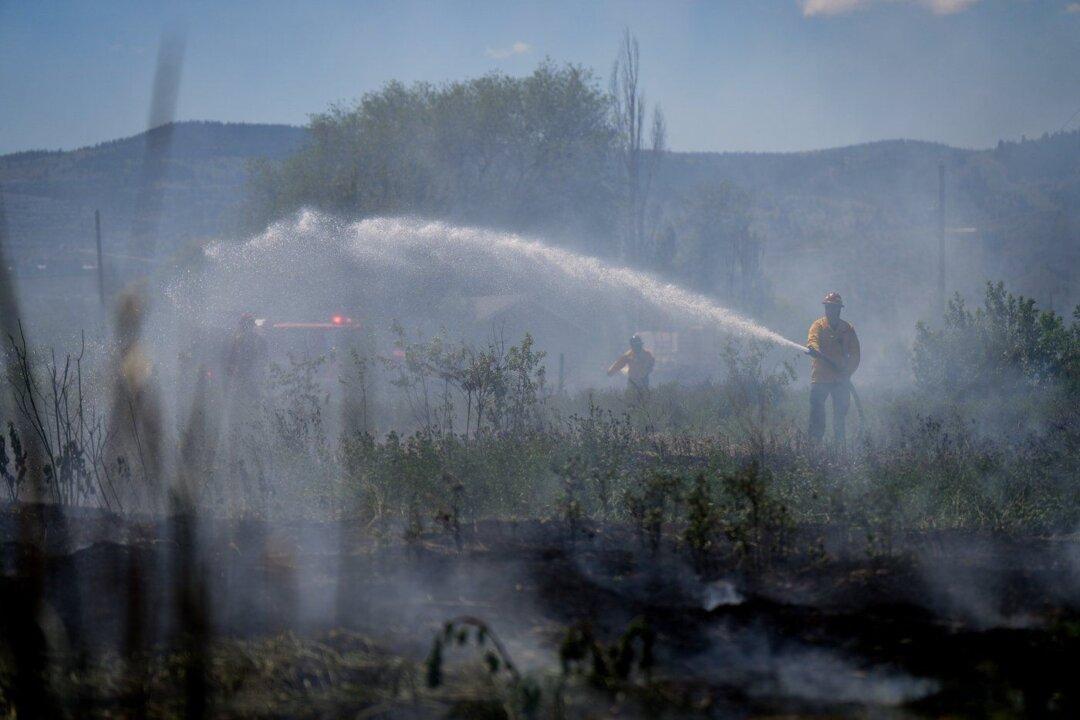A small but aggressive wildfire on Vancouver Island is burning beside the only major highway linking Port Alberni, Tofino and Ucluelet to the rest of British Columbia.
The route is closed until further notice as the nearly one-square-kilometre blaze spreads in steep terrain south of Cameron Lake, not far from Cathedral Grove, home to some of Canada’s oldest and tallest trees.





